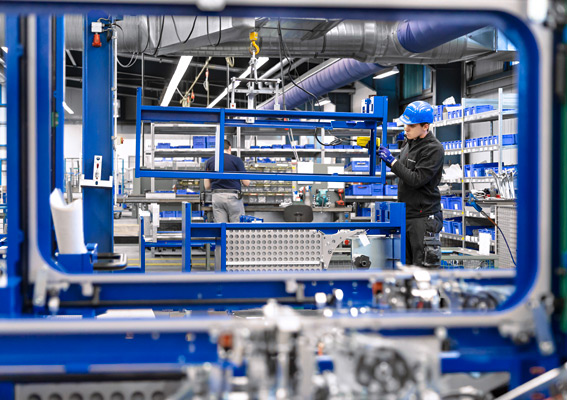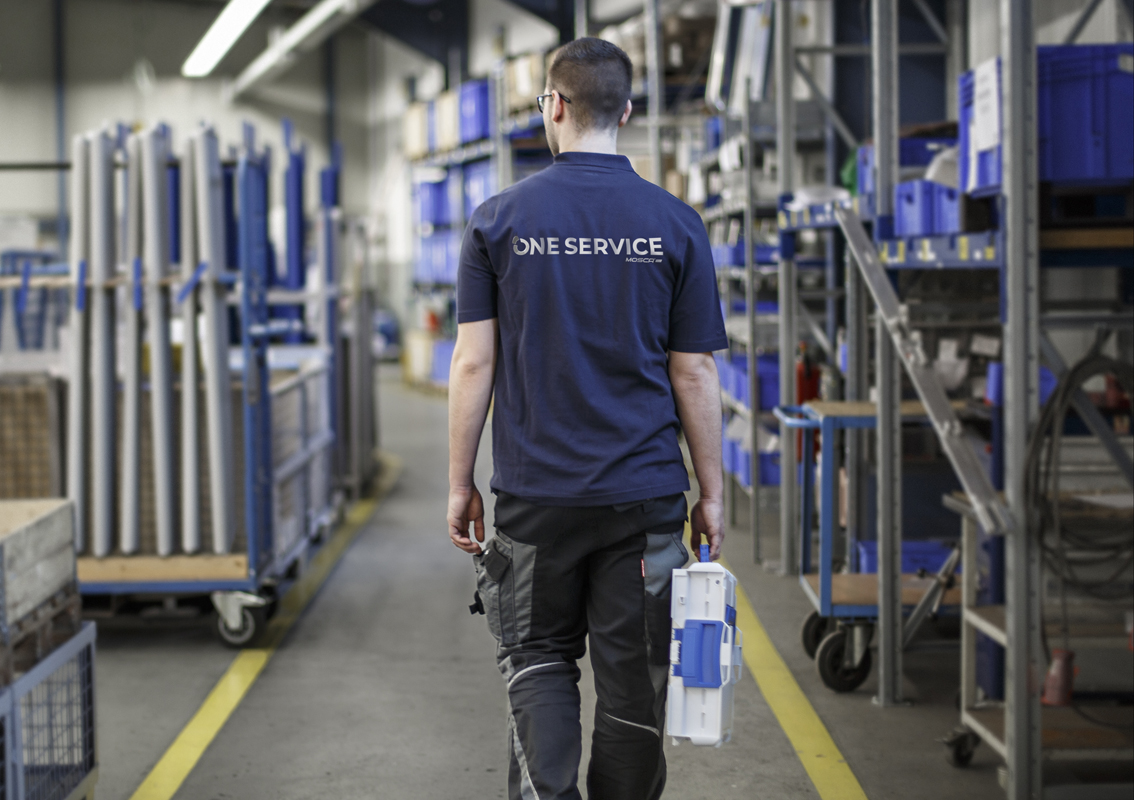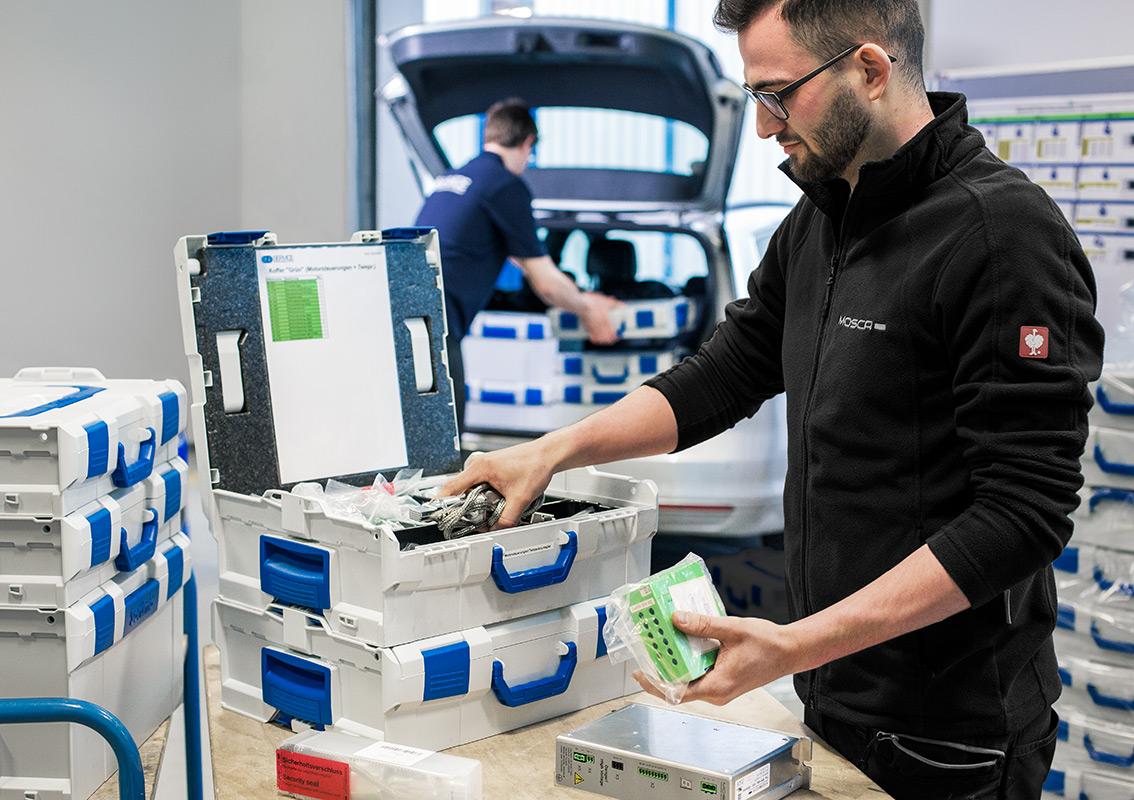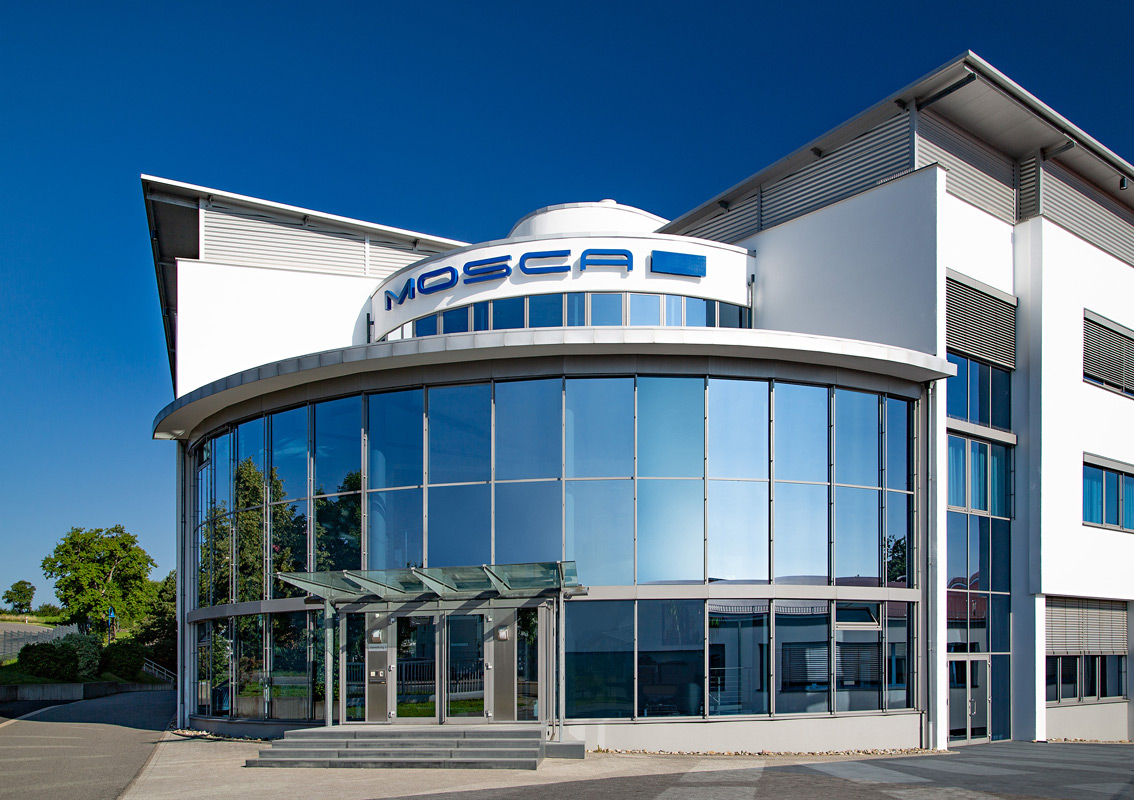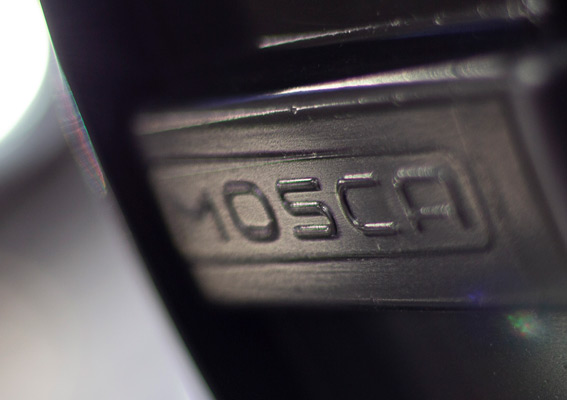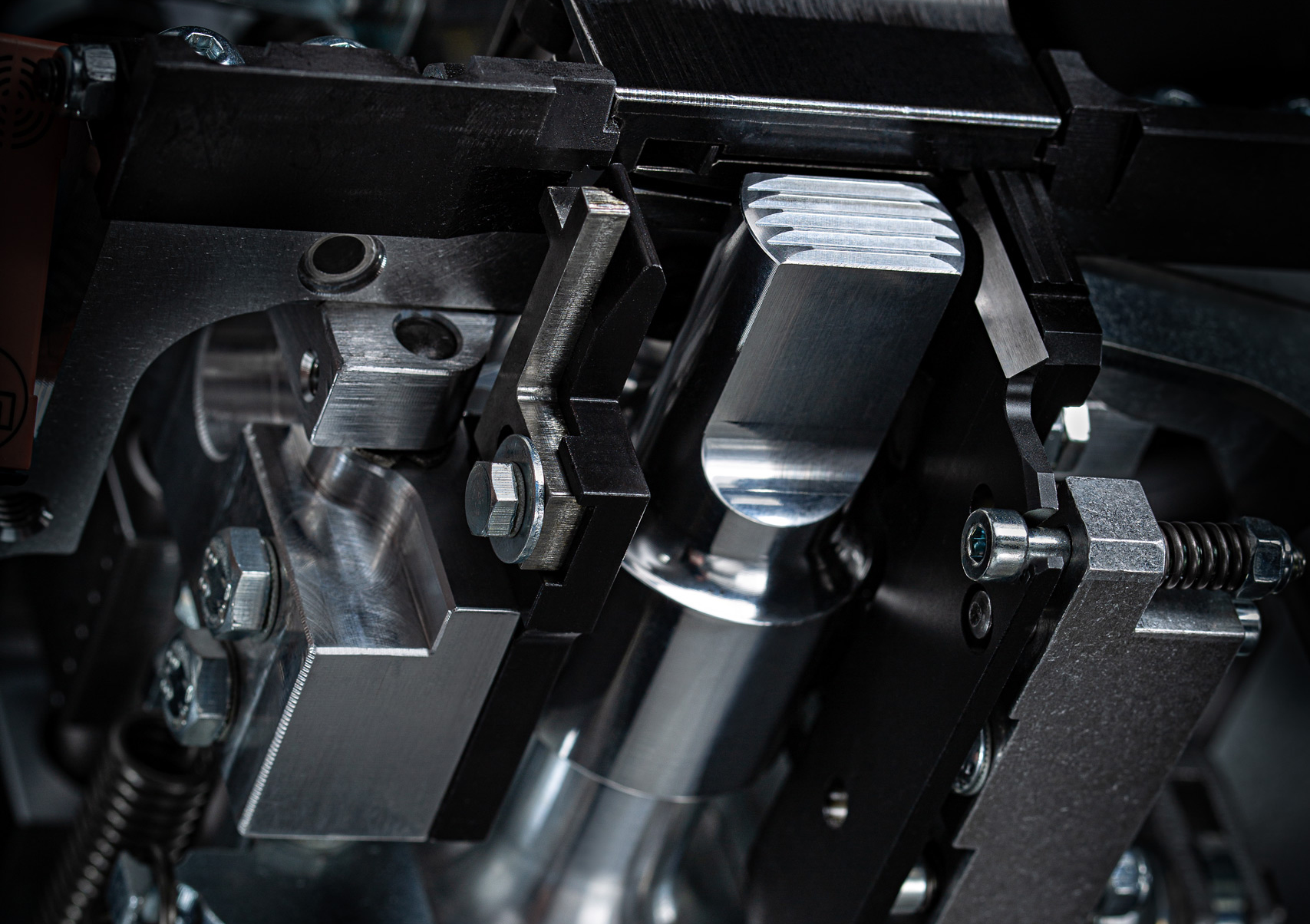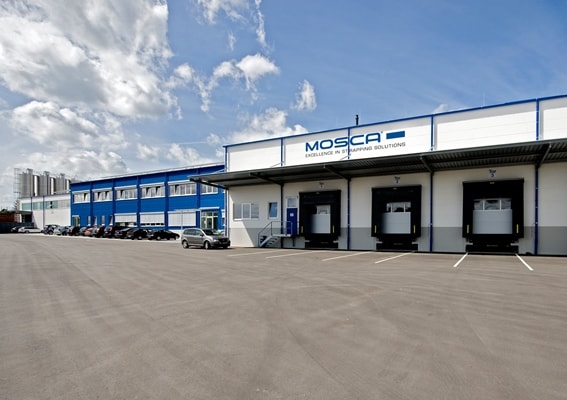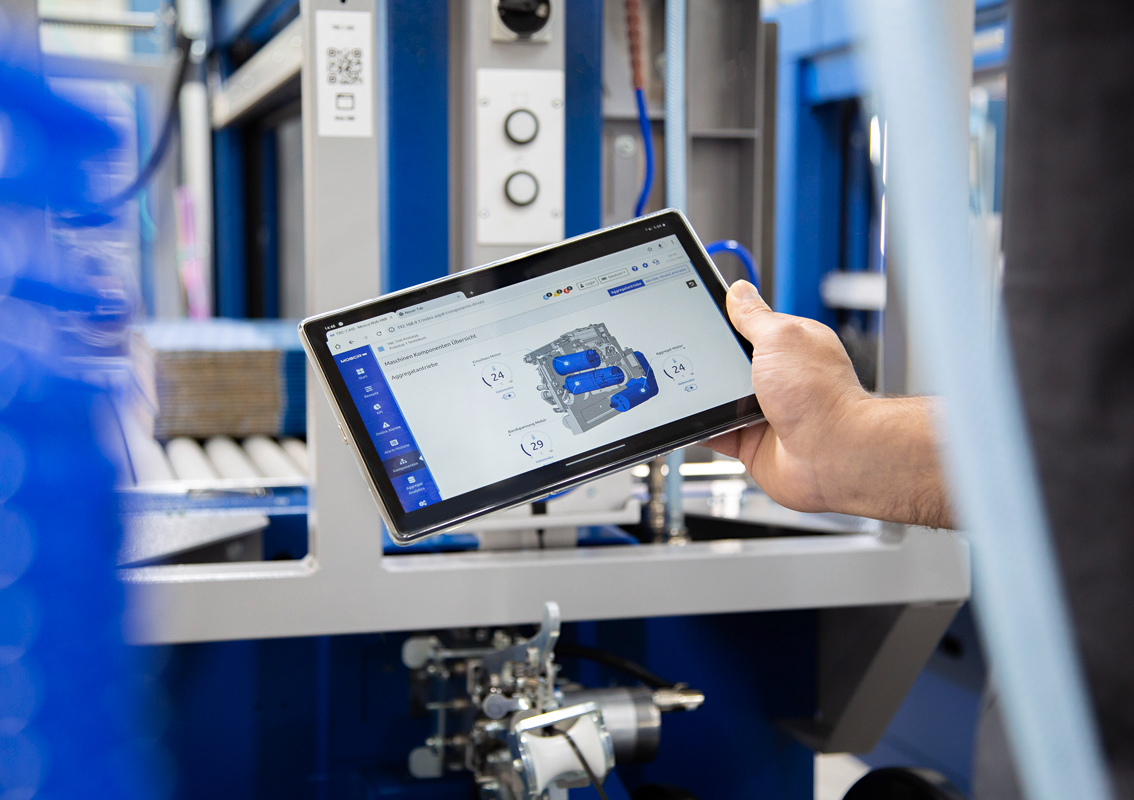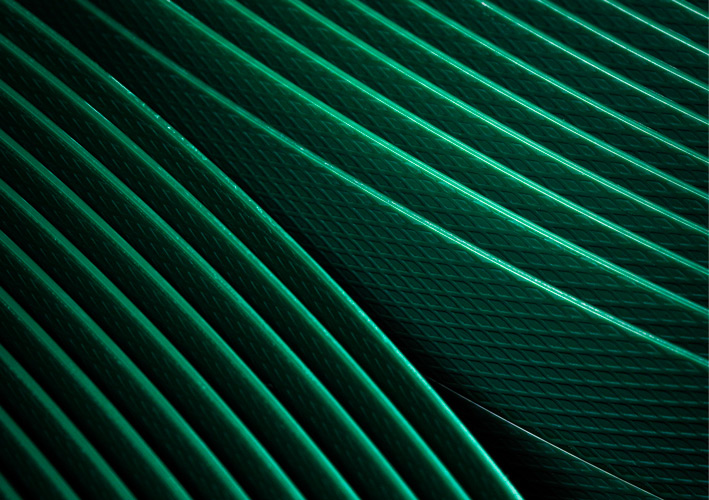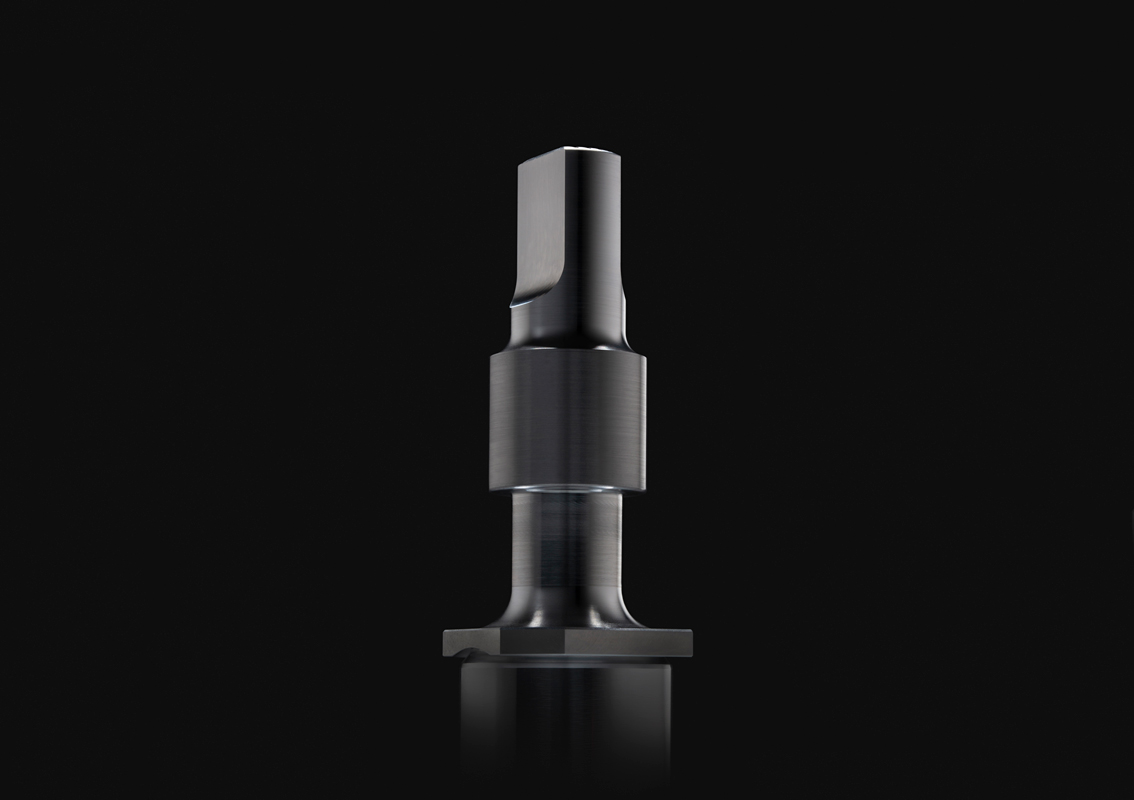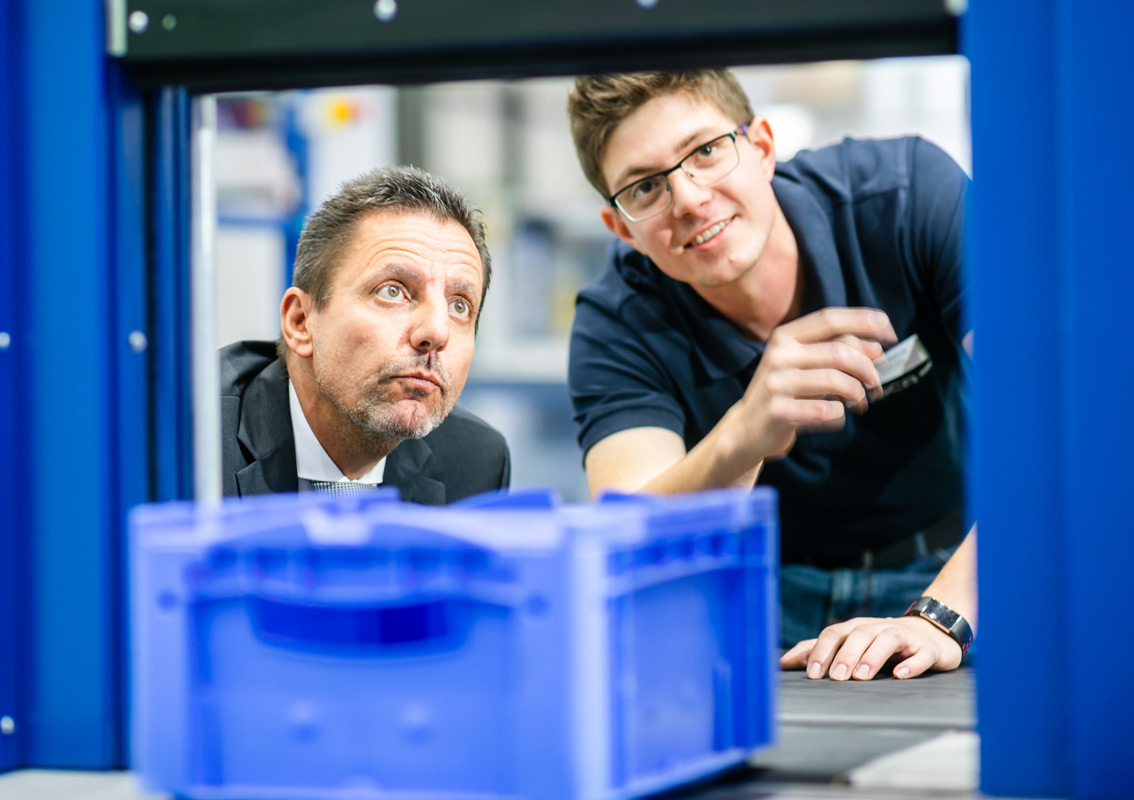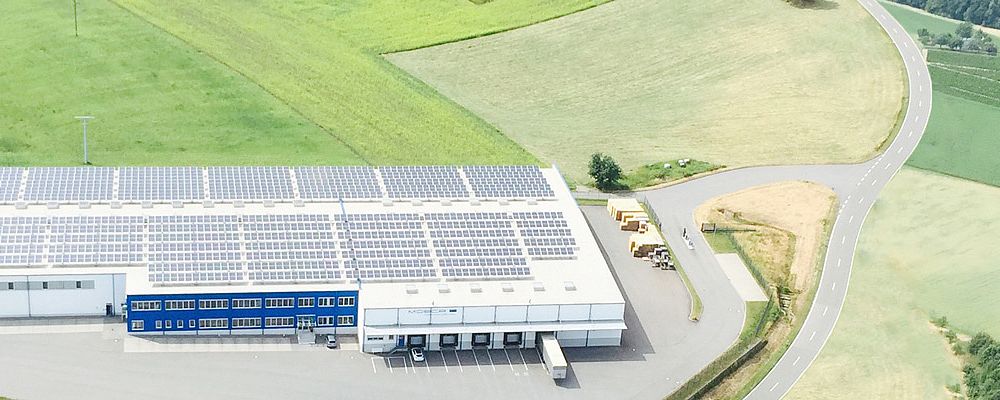-
Solutions
-
Application Solutions
- Application Solutions
-
Closing
-
Bundling
-
Handling Aid
-
Load Securing
-
Product Solutions
- Product Solutions
-
Machines
-
Systems
-
Strapping
-
Integrated Solutions
-
Strap Solutions
- Strap Solutions
-
PP Strapping
-
PET Strapping
-
Eco Strapping
-
- Services
- Company
- Competences
- Mosca International

Continuous Sustainability
Since 2008, we have produced our high quality plastic strapping material in one of the most modern production plants in Europe, located in Muckental not far away from the company Headquarters. Right from the beginning, sustainability was a key factor in the planning, construction and operation of the plant in Muckental.
Several extrusion lines are in fully-automated operation around the clock producing polypropylene (PP) and polyester (PET) strapping materials. The strap ranges in width between 5 and 15.5 mm and is suitable for use in all strapping machines independent of machine type or manufacturer. Mosca deals with the increasing customer demands for sustainability in various ways.
Cradle-to-grave recycling process
In Muckental PET strap is made from 100% recycled material: The so-called "bottle flakes" are a result of recycled plastic bottles coming from of the empties of discounters. After processing, the recyclable raw material becomes a premium new product: depending on the width, the mostly green-coloured PET strap withstands loads between 185 and 580 kg. The waste or scrap material automatically generated during production is again returned for re-use via a shredding system.
According to a statement by the recycling service provider Interseroh, the use of the recycled material saves about 85 % of the CO2 emissions compared with primary processes – these are about 2.5 t of CO2 per t of produced material as opposed to the use of virgin material. The savings made over a year are equivalent to the annual amount of CO2 filtrated from the air by a 500 ha forest.
Outside and inside: using green energy
At our new production plant, we have put the potential of the huge flat roof to full use and installed a photovoltaic system with 2,500 square meters of solar panels, which feed the power supply system. Thus, environmentally friendly strapping material can be produced as the production line for the PET strap does not require more energy than the factory-owned photovoltaic system produces.
In addition, the weather from October to March provides a further advantage: no additional energy for cooling the production processes has to be expended. The outside temperature is adequate at this time of year to feed the necessary cooling units via a multifunctional cooling system of free-cooler and compressors.
Energy is recycled even inside the production hall. The isolated hot parts of the machine equipment provide high energy efficiency and any remaining waste heat is used to heat the hall on cold days. Energy gained from brake lines is made available to the system again in form of electricity, since parts of the production line have powered motors with an electronic transformer.
Customer-oriented sustainability
Mosca continuously works on offering customer-oriented solutions. One of our mostly demanded products is the 5 mm wide standard polypropylene strap. Here a linear length of up to 8,000 m on a coil is offered by the latest spooling technology instead of the usual linear length of 6,500 m. This saves not only space in transportation, but allows longer operating times with fewer coil changes and set-up costs for the customer.
Additionally, optimised packaging technology and palletising schemes provide for the fact that less packaging waste results for the customer. For example, many specifications of strap are no longer packed in cardboard boxes, but are stacked directly on the pallet. This is completely wrapped in a stretch film and thus eliminates the need for about 40 packaging cardboard sheets per pallet. Over the course of a year, the savings for key accounts amount to several thousand cardboard sheets on average.
Of course, customers can also dispose of their used strap enduringly. This is regulated by the Plastic Recycling Society (KBV) of which Mosca is a member. KBV attends to the advancement of an environment-friendly and economic plastic recycling. In other words, customers can contact the society and have their strapping waste forwarded to a recycling facility.

Mosca's road to the future!
 Mosca International
Mosca International
 America
America Asia
Asia Australia
Australia 中国
中国 Deutschland
Deutschland Suomi
Suomi France
France Great Britain
Great Britain Indonesia
Indonesia 日本
日本 Malaysia
Malaysia Nederland
Nederland Mexico
Mexico Polska
Polska España
España ประเทศไทย
ประเทศไทย Magyarország
Magyarország
